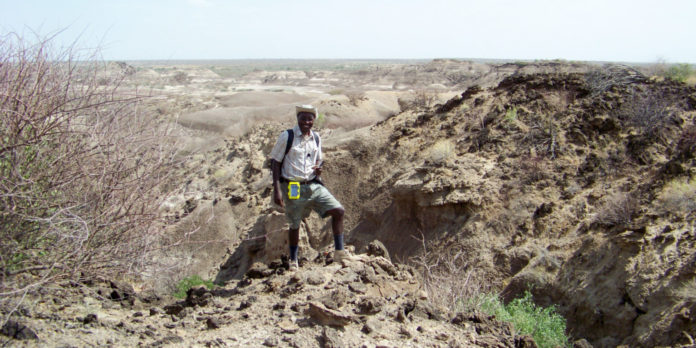Mercer University School of Medicine faculty member Francis Kirera, Ph.D., is part of a multi-institutional, multi-national team that received a $2.6 million National Science Foundation (NSF) grant to explore the geology and paleontology of the East African Rift Valley (EARV) in Kenya.
The EARV began developing around the onset of the Miocene, a geological epoch that extends from about 23 million to 5.3 million years ago. The area is known for its rich fossil record, especially those belonging to early humans.
The three-year project, titled “Parsing the influence of climate and tectonics on Miocene ecosystems and faunal evolution in the East African Rift, Kenya,” is led by Dr. Isaiah Nengo of Turkana Basin Institute and involves more than 20 researchers from institutions in the U.S., Europe and Africa.
Set to begin next July, the project aims to survey old and new Miocene sites in the Turkana basin region. Dr. Kirera’s team will specifically focus on the Sibiloi site on the eastern side of the Lake Turkana, known for the presence of huge fossil woods.
“This is exciting news for paleontologists working in East Africa,” said Dr. Kirera. “For the first time, this grant brings together researchers from three continents with diverse backgrounds in the fields of geology, paleoclimate, paleoecology and paleontology to work as a team and try to tease out the forces behind the evolution, diversity and distribution of Miocene fossils from the Turkana basin.”
Dr. Kirera, assistant professor of anatomy in the Department of Biomedical Sciences, focuses his research on reconstructing the paleoecology and biogeography of ancient mammals, including early humans, primarily in Kenya.
Continue reading about Dr. Kirera’s research at news.mercer.edu.










